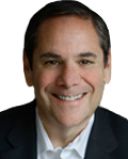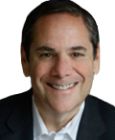Anxiety
Avoiding a Hole in the Heart
Being proactive creates greater comfort
Posted February 6, 2014
The death of a husband, a wife, a life partner is devastating. It is one of the life transitions that typically create the greatest chaos and pain.
The grief process that follows can be profound and challenging. One support to the newly bereaved is the ability to avoid focusing on their finances until they are emotionally ready to do so.
“Candace” had just lost her husband barely two months earlier. She was, understandably, in a highly emotional state. What made her so anxious to meet with a new financial advisor? Her husband had died suddenly and she had no idea whether she could safely grieve without financial worry.
Instead of being secure in the knowledge that she and her husband had planned well for their future, Candace spent her new widowhood embroiled in financial worry.
What we uncovered was — to put it politely — a mess. They owned an assortment of completely inappropriate investments, loaded with commissions. It made no sense from either an investment or tax perspective — a second opinion before their purchase would have saved them enormously. Not just financially, but emotionally.
This happens way too often. People avoid getting another view of their financial life — because they fear what they might discover, they don’t want to spend the time or simply don’t want to hurt the feelings of their current advisor.
Isn’t securing your financial future (or that of your nearest and dearest) worth ruffling a few feathers?
Some of the areas that scream for a second opinion:
- Your stockbroker or registered representative — even if they call themselves an advisor or a financial planner — is paid by commission.
- Your advisor provides a boilerplate “plan” that contains a lot of jargon and generalities and charges a nominal fee.
- You don’t understand how your investments work. Or you think you do and it scares you. A lot.
Candace’s situation is far from unique. The financial service industry has worked diligently to confuse the public and lobby against proper protection for consumers. So it's up to you.
Contact www.napfa.org for a list of fee-only fiduciaries. Find someone who will offer an hourly compensation option to provide an objective review of your situation. When you find this person, ask them about their philosophy about planning — and make sure it makes sense to you. Pony up a few extra bucks for the peace of mind you deserve; no one should wind up with a hole in their heart during the time when they can least afford to deal with the pain.


